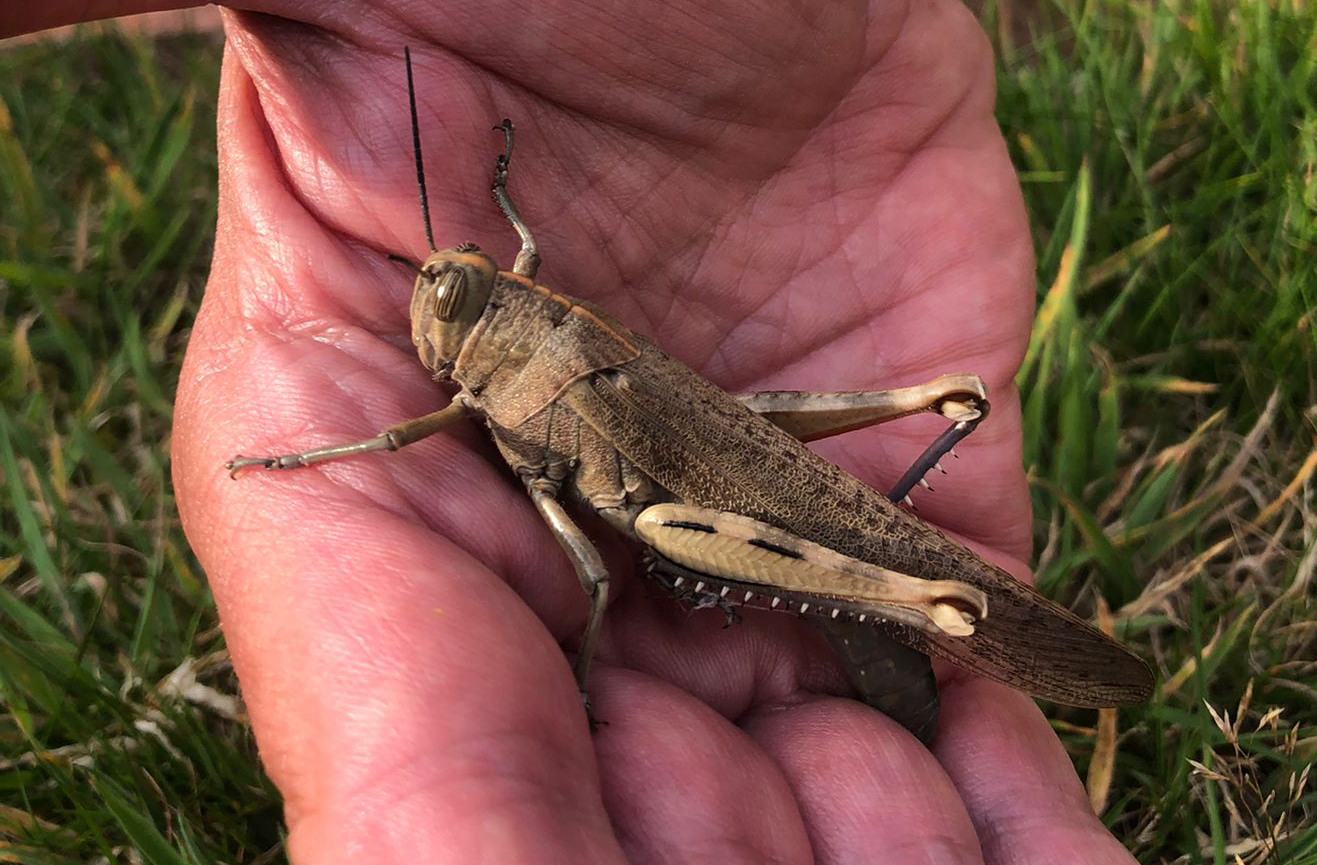Britain could be in for a plague of plant-munching locusts, experts warn, after one of the giant insects landed in Cornwall.
The huge locust was spotted in a garden near Penzance, having made its way from Africa, sparking fears that climate change could make such visits more common.
Though usually solitary, locusts are notorious for forming enormous swarms that can devastate crops, travelling vast distances and stripping greenery wherever they settle.
READ MORE: Giant UFO shaped hole stuns locals after appearing above houses
Swarms have plagued humans since ancient times.
They are etched on Egyptian tombs and mentioned in the Bible, Quran, the Iliad, and the Mahabharata.
The rare UK visitor was discovered by Tonny Steenhagen on Friday (22 August 22).
“I was visiting my daughter Jasmin with my wife Deb and another daughter, Amberley, as it was our grandson Finley’s birthday,” he told What’s The Jam.
“We spotted the locust on a bush.
“It flew on the grass where I put my hand down.
“The locust slowly walked on my hand and stayed quite a while – long enough for Finley to have a good look.
“Next, the locust flew on the wall near the door and stayed there for a long time.
“We knew it was unusual, but didn’t realise how rare to see in the UK.
“This definitely made Finley’s birthday.
“We saw it at about 4 pm.
“The next morning, it was still on the wall.
“We left it and went out for the day.
“When we came back, it was gone.”
A spokesperson for Cornwall Wildlife Trust said: “Usually found in Mediterranean Europe and North Africa, these locusts are thought to arrive with strong winds blown from the south east.
“It’s likely this locust arrived on the same wind that’s dumping Saharan dust on our cars overnight.
“Though only one or two are seen in the UK each year, changing climates may make conditions here more suitable.
“Don’t forget to log unusual sightings to help track non-native species and their impact on our ecosystems.
Records allow us to track changes over time and spot new arrivals, as well as improve our understanding and help us to better protect our native wildlife and ecosystems.
“This data can also be used in decision-making, education, research and other public benefit purposes.”
READ MORE: Shoppers left outraged after budget clothes chain says it’s pronounced ‘Preemark’ not Primark
